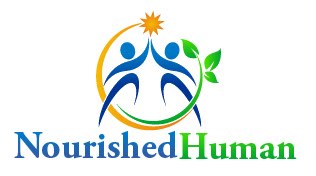Mood and Food
3 Nutritionally Related Mood Triggers
and
6 Simple Ways Food Helps Regulate Mood
Mood Swings – Nutritionally Related Trigger #1 – Hypoglycemia
Hypoglycemia – a fancy
name for low blood sugar level. Hypoglycemia occurs when:
- Your body's sugar (glucose) is used up too quickly
- Glucose is released into the bloodstream too slowly
- Too much insulin is released into the bloodstream
Although it is most
common in people with diabetes, it can happen for healthy people from time to
time as well, especially when there is big fluctuation in blood sugar level, or
if a person hasn’t eaten for a long period of time.
Skipping meals, not
eating enough during meals, genetic tendency for low blood sugar and not
compensating by adding extra meals or snacks can all contribute to
hypoglycemia.
There are a few ways to
alleviate mood issues caused by hypoglycemia:
§
Eat meals that are low in glycemic
load: substitute refined grains with whole grains, include a generous amount of
vegetables, and a moderate amount of protein and good fats which can slow down
the absorption of carbs.
§
To keep blood sugar levels even, experiment with having 5 – 6 small meals
or snacks a day, instead of 3 big meals.
§
Avoid as much as possible processed
foods, and anything that contains sugar and refined carbohydrates.
If you need extra help
with balancing blood sugar level, there are a few things that you can take to
supplement your nutritional intake The basics are:
- Good multivitamin to deal with backlog of deficiencies
- Vitamin C
- Essential fatty acid – fish oil supplement, omega 3
Mood Swings – Nutritionally Related Trigger #2 – Gluten Intolerance
Gluten
intolerance can trigger mood swings, depression and anxiety.
People who are gluten
intolerant can suffer from mood problems, depression and anxiety when they eat
foods that contain gluten. In children, this can also be expressed as learning
disabilities or behavioral issues such as hyperactivity. Gluten can damage the
brain and nerves of gluten-sensitive people. The symptoms from gluten occur
through its action on the nervous system and affect brain function.
Gluten intolerance often
expresses itself as chronic bowel problems, especially constipation, and
cravings for gluten-containing foods such as refined sweets and starches.
The best way to find out
if you are gluten intolerant is to eliminate gluten from the diet and challenge
after 2 weeks – meaning adding gluten-containing foods back into the diet and
observe the reaction.
Here are some gluten-free
grains that you can explore: brown rice, buckwheat, amaranth, cornmeal
(polenta), millet, quinoa, wild rice and oats/oatmeal (sometimes oats can
contain gluten due to content, contact or contamination during the
manufacturing process).
Mood Swings – Nutritionally Related Trigger #3 – Neurotransmitter
Dysfunction
Our brain depends on
neurotransmitters to transmit signals. Neurotransmitters are made of amino
acids, which come from protein in our food. The brain is protein dependent, it
needs amino acids, which makes up protein, to manufacture these
neurotransmitters.
Neurotransmitters that
regulate mood also regulate our appetite. When we become deficient in our
neurotransmitters, we start craving carbs and sugars. The more deficient, the
more cravings we have for bad carbs such as refined sugar and processed
carbohydrates.
If dietary improvement is
not enough to relieve the depression and anxiety, and to counteract the
cravings for “bad mood foods” such as refined carbs, sugar, corn syrup,
fructose-based substances etc., then supplementation may be necessary. This is
called amino acid therapy – the process is to identify negative mood and see
what nutrient supplement that are most useful for the symptoms.
The most common reason for
depression is serotonin deficiency. The precursor of serotonin is tryptophan, which
is the first to be lost in a low calorie diet. It is most common for people who
skip meals and are addicted to empty calories.
However, not everyone is
suitable for amino acid therapy – particularly if you have pre-existing
conditions or are taking other prescription medication. Never try to
self-prescribed – always consult a qualified professional before taking amino
acid supplements.
6 Simple Ways Nutrition
Helps Regulate Mood
#1. Eat regularly: Food
is fuel; skip a meal and you'll feel tired and cranky.
#2. Don’t skimp on carbs:
Carbohydrates have long been demonized, but your body needs carbs to produce
serotonin—a feel-good brain chemical that elevates mood, suppresses appetite,
and has a calming effect.
Only complex carbs—high
in fiber and packed with whole grains—have a positive effect on mood, whereas
simple carbs such as candy, cake, cookies, and other sugary choices, bring you
down. Need a quick mood boost? Try a healthy carb snack, like a couple cups of
air-popped popcorn or half a whole-grain English muffin.
#3. Get enough omega-3
fatty acids: Omega-3s—found in fatty fish like salmon, mackerel, and
sardines—improve both memory and mood. Most experts recommend at least two
servings of fatty fish per week; other sources include ground flaxseeds,
walnuts, canola oil, and omega-3-fortified eggs.
#4. Get enough of these
nutrients: iron, vitamin B1, B6, folic acid, selenium, and vitamin D.
#5. Watch your fat
intake: Greasy choices—particularly those high in saturated fat—are linked to
both depression and dementia.
#6. Moderate your
caffeine intake: In moderate amounts, caffeine can enhance physical and mental
performance, but too much can spur anxiety, nervousness, and mood swings. Stick
to one or two cups daily to dodge the negative effects.
Hormonal Balance and Mood
(PMS)
For us ladies, staying
emotionally balanced is always more challenging during “that time of the
month”. The hormone fluctuations that we experience during our periods can be
particularly challenging for some.
Vitamin B6, zinc,
magnesium and GLA have been shown to alleviate PMS. For some kinds of PMS,
hormonal changes disturb blood sugar control and bring on sugar and stimulant
cravings, as well as symptoms of tiredness and irritation. In this case,
eliminating sugar and stimulants from the diet, as well as eating complex
carbohydrates and fruits in small quantities and often, can often help relieve
the symptoms.
If these dietary changes
cannot help completely resolve the issue, you may then want to see if your PMS
is due to estrogen-dominance or relative lack of progesterone. This condition
may be brought on by prolonged use of birth control pills, and will need
testing and correcting by a qualified health professional.










 Healthy Holiday Recipes eBook
Healthy Holiday Recipes eBook